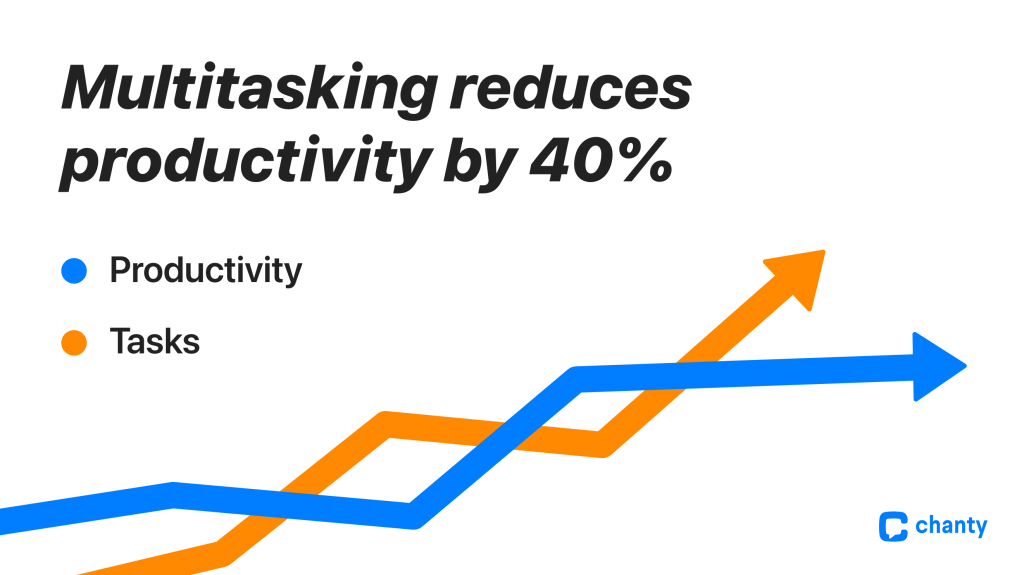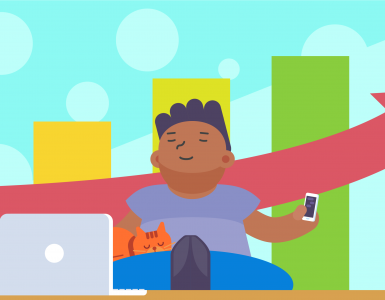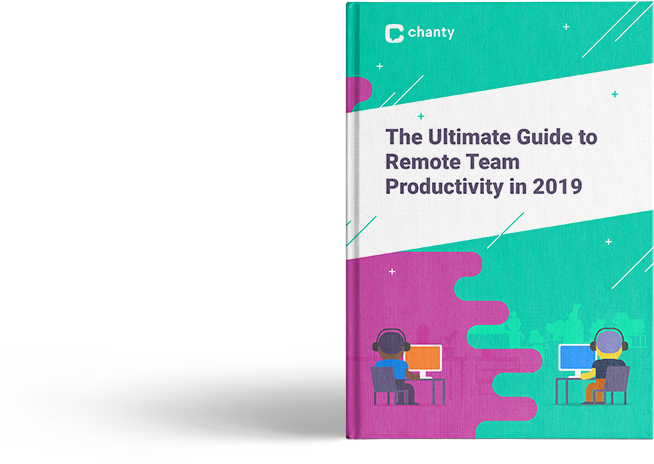Employee productivity, according to WhatIs.com, is “an evaluation of an employee’s or group of employees’ efficiencies.”
Employee productivity, in short, assesses how much useful work an employee performs for an organization over a given time. If a company wants to prosper, it needs people that are highly productive.
We’ll give you 15 intriguing and useful employee productivity stats that are applicable today. Hopefully, you can use this information to develop new policies in your company and improve the general efficiency of your team.
Employees prefer to work alone 86% of the time
According to a study done by Apollo Technical, whether working from home or at the office, on average 86% prefer to work alone. Employees report that being able to separate oneself from others reduces distractions. They also feel less motivated to deliver or connect in certain ways, allowing them to concentrate only on their tasks.
This autonomy pertains to projects as well. Many workers would rather work on projects on their own than rely on others to complete their part of a collaborative effort. This is still applicable in most circumstances, even if working alone requires the person to work harder.
Employees believe that interactivity may boost workplace productivity by 89%
When projects are gamified and become interactive, many employees believe they become more competitive and motivated to do them, which enhances workplace productivity. Statistics on productivity and technology continue to reveal a link between technical complexity and output.
80% of employees require financial assistance
According to a poll of 220 clerks, over 175 of them wished their employers had provided financial assistance to them. Employees who are concerned about their financial situation are less productive than those who are financially comfortable. Employees seek loan counseling, and it’s a relatively inexpensive practice to start in most organizations. They believe that if they were more confident in their financial management, they would be happier and more productive in general.
Every three minutes, the average employee is interrupted
After an interruption, it may take people 23 minutes to refocus. Employees are interrupted every three minutes and five seconds, according to a study done by experts at the University of California, Irvine. That indicates that for every 26 minutes spent at the office, workers get three minutes of work done.
The average employee works for less than three hours daily
Every day, the average worker is only productive for 60% or less across all industries. However, for some working professionals, this ratio reduces dramatically. According to VoucherCloud research, the average employee is only productive for merely two hours and 23 minutes each day.
This means employees are generally unproductive for five hours and 37 minutes per day, assuming an eight-hour workday. Every day, that’s a significant amount of time and money squandered by the employer.
Employees cost $28 billion a year to using facebook
Facebook also costs employers several billion dollars per year, according to research done by Hubspot. This is because employees spend roughly 32% of their workdays on Facebook. Generally, they won’t be working if they are on social media. Each year, this productivity loss results in a significant amount of money being squandered.
Multitasking has been shown to reduce productivity by 40%
Multitasking, according to productivity data, can reduce your productivity rather than increase it. Constantly switching from one job to another is stressful to the brain, making us less productive or causing toxic productivity.
Try incorporating the 1-3-5 rule into your work routine instead of handling multiple projects at once. This method works by handling the most difficult things first, then moving on to medium-level jobs, and finally finishing the day with the simplest tasks.

Employees involved in decision making are more productive
Employees who are allowed to engage in “major decision-making sessions” are often more efficient, according to another study. When employees are given a say in company decisions, they feel as if their position in the firm counts – as if they have a perspective that is heard. Higher productivity rates are a result of these feelings.
People often feel like they helped develop something when they’re investing in it and have a hand in improving it. They want it to succeed, therefore they put in extra effort to make it happen.
Stress has a negative impact on productivity
According to research by Go Remotely 50% of employees miss one to five hours of work every week due to stress. Managers usually take several actions to reduce the stress levels which ultimately affect the productivity of employees. These measures may include offering a higher salary, paid vacation leaves, more flexibility in work schedules, and wellness initiatives for better productivity levels.
Appropriate nutrition can boost work productivity by 25%
A productivity study by Go Remotely that lasted three years questioned 20,000 employees per year. They came to the conclusion that employees who ate fruit and vegetables at least four days a week were 25% more productive than those who did not.
Employees are more productive around the holidays
According to workplace productivity statistics, the main causes for the productivity decrease among the 35% who feel less productive are social and personal responsibilities, increased year-end workload, flu season, and holiday shopping. The more productive employees, on the other hand, avoid common office distractions to depart on time.
Stress and a lack of work-life balance
According to the Yerkes-Dodson Law, our ability to perform at our best is determined by the amount of pressure we are under for the work we are performing. When we are under too much stress, our performance suffers dramatically. Productivity suffers when an employee’s mental and physical resources are depleted.
66% of 1,077 adults surveyed by Glassdoor believe they would be better and more productive employees if they had more sleep, especially those between the ages of 18 and 44. Furthermore, persistent stress is linked to absenteeism. According to research by the Health Advocate, one million employees miss work every day owing to stress.
Freelancers are productive 36 hours each week
According to a study done by Yahoo Finance, in comparison to the average office worker, the average freelancer works for roughly 36 hours each week. If freelancers work five-day weeks like the rest of us, that equates to almost seven hours of productivity per day.
They put forth more effort than those in other professions since the amount of time they spend working is directly proportional to the amount of money they earn. But the overall productivity of a freelancer also depends on the type of technology, software tools, and techniques they are using.
Moreover, it is also noticed that companies who need to leverage on-demand workforce onboarding benefit from a freelance management system. It makes onboarding and offboarding, invoicing, payment, and workforce classification easy and also help managers help find the right talent quickly.
Environment influences productivity
According to a Robert Half poll, 71% believe that listening to music at work makes them more productive. According to a CareerBuilder poll, 53% are less productive when their workplace is excessively cold. According to Gallup’s State of the Local Workplace, 85% of employees are neither engaged nor actively disengaged at work, resulting in $7 trillion in lost productivity. According to research by Exeter University, open workplace layouts cause a 32% decline in overall happiness and a 15% drop in productivity.
Meetings are exceptionally unproductive
Meetings aren’t necessarily a waste of time, but they aren’t always helpful either. Atlassian did a study on meetings that revealed the following startling findings:
- 91 % daydream in meetings
- 39 % have slept in meetings
- 96 % have missed at least one “mandatory” meeting
- 73 % started working on other tasks while attending a meeting
- 50 % of employees perceive meetings to be a waste of time
The takeaway
Given the numerous advantages of workplace productivity, it’s no surprise that businesses are always looking for new ways to boost productivity and developing unique productivity metrics to effectively evaluate it.
It is difficult for any organization to maintain a specific level of productivity, especially considering the numerous factors that can influence it. Even so, anyone who wants to give it a shot will be handsomely rewarded.












Good!
Such a wonderful read! Kudos to the author